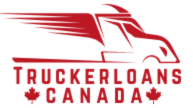Introduction:
One of the most important choices you’ll have to make as a trucker or the owner of a trucking business is whether to buy a vehicle outright or choose a lease. Before making this important financial decision, it is imperative to examine the benefits and drawbacks of each alternative. In this post, we will look at the benefits and drawbacks of buying and leasing a vehicle, allowing you to make an informed decision that is in line with your business goals and financial capacity.
Benefits of Purchasing a Truck:
- Ownership Is Important: When you choose to purchase a truck outright, you take full ownership of it. Because you feel like you own the vehicle, you may alter it as you see fit and make it a true representation of your company.
2. Equity Build-Up: As you pay off your loan each month, you increase the truck’s equity, turning it into a valuable asset that you may use as collateral or to leverage for additional financing.
3. Long-Term Cost Savings: Although purchasing a truck has greater up-front costs, it may end up being less expensive in the long run than leasing, particularly if you plan to retain the vehicle for a longer period of time.
4. Mileage Freedom: Unlike leasing agreements, when you own a truck there are no mileage limitations. Drive as much as necessary without worrying about paying for extra miles.
5. Tax advantages: Owning a truck entitles you to tax advantages such depreciation deductions, loan interest deductions, and potential maintenance expense deductions.
Drawbacks to purchasing a truck
- Hefty Upfront Costs: Buying a truck necessitates a sizeable upfront payment or down payment, which may be difficult for some truckers or businesses to afford.
- Depreciation Woes: Trucks, like any other vehicle, deteriorate with time, and their resale value may fall short of the original purchase price.
- Maintenance Responsibilities: As the owner, you are responsible for all maintenance and repair charges, which might be unpredictable at times and add to your overall spending.
- Keeping Up with Technology: As the owner, you are responsible for keeping the truck up to date with the latest technology.
Pros of Leasing a Truck
Initial Costs are Reasonably Low: Leasing frequently needs little or no capital up front, making it an attractive alternative for truckers with tight budgets.
Budgeting Predictability: Lease agreements include set monthly payments, making budgeting and cash flow management simpler.
Regular Upgrades: When your lease term is complete, you can upgrade to a newer model or a truck with more advanced amenities, keeping up with the most recent market trends.
Tax Benefits: Lease payments may be tax deductible in some circumstances as an operational expense, providing possible tax benefits.
Cons to leasing a truck
No Ownership Benefits: When you lease a vehicle, you don’t own it and are required to return it at the end of the lease term, thus there is no opportunity for asset retention or equity growth.
Mileage Restrictions: Lease contracts frequently have mileage restrictions, and going over the allotted miles may result in extra fees.
Lease Terms and Penalties: Prematurely terminating a lease agreement may result in costs and penalties.
Limited Customization: Truck changes and customizations are frequently prohibited under leasing agreements.
Conclusion:
The decision of whether to purchase or lease a vehicle is one that should be carefully thought through in light of your financial circumstances, long-term goals, and business requirements. Leasing offers reduced initial expenses and more flexibility while owning a truck offers ownership perks and possible cost savings. To decide which choice best meets your trucking business objectives, consider your financial capabilities, anticipated usage, and personal preferences. Keep in mind that making an informed choice will put you on the correct track for a profitable trucking business.
